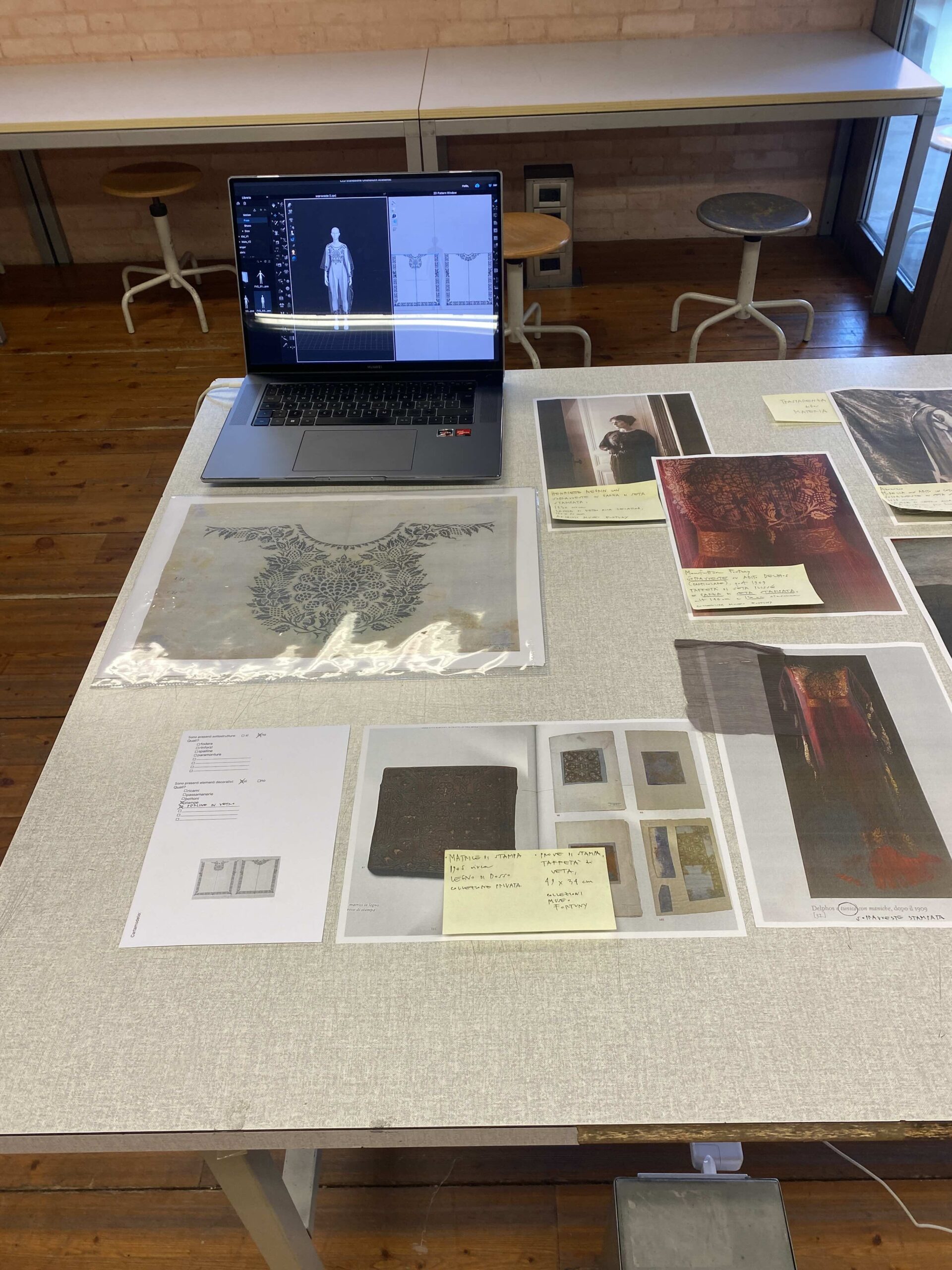
EFHA World 20.10.2025
24.10.2024
craftcultural appropriationethicsfashion conferenceresponsibility
Learn more about the EFHA2024 conference, organised in collaboration with MUDE Museu do Design – Lisboa
Codes of Conduct: Responsibility and Ethics in Fashion Heritage Conference
Heritage is the repository of our cultural and historical legacies, holding profound significance in shaping societal identities and fostering intergenerational and intercultural bonds. The stewardship of these assets necessitates a commitment to responsibility—one that transcends preservation to include sustainable management, equitable engagement, and a broader adherence to ethical codes of conduct.
In 1972, UNESCO published the World Heritage Convention, outlining the international community’s shared responsibility to protect cultural and natural treasures for future generations. This agreement has since inspired a comprehensive approach to heritage conservation, integrating conservation principles with socio-economic development imperatives. The discourse surrounding heritage and responsibility has grown increasingly critical in recent years.
In 2022, the International Council of Museums (ICOM) redefined the museum as “a not-for-profit, permanent institution in the service of society that researches, collects, conserves, interprets, and exhibits tangible and intangible heritage.” According to ICOM, museums foster diversity and sustainability while operating ethically, professionally, and inclusively. This definition can be extended to all institutions safeguarding heritage, particularly those in the public sector, reinforcing the imperative of collective action in preserving our diverse cultural legacies.
In response to this evolving landscape, the Codes of Conduct: Responsibility and Ethics in Fashion Heritage conference will address the complex responsibilities faced by fashion heritage professionals and institutions—both past, present, and future. Organised in collaboration with MUDE Museu do Design, Lisbon, the event will take place in the newly reopened museum in Lisbon, and will delve into a nuanced understanding of ‘responsibility’ as it relates not only to the heritage objects themselves but also to the public(s) that engage with them. This timely conversation will explore methodologies for addressing social, economic, political, and ethical challenges, as museums and cultural institutions reimagine their roles in a rapidly changing world.
This conference promises to be an essential platform for heritage professionals, academics, and cultural leaders to engage with emerging ideas on responsible stewardship. It aims to chart a new path forward in preserving and honouring the legacies of fashion heritage in a way that benefits both present and future generations.
Register here
Programme:
DAY 1 – 21 November
13,00 – 14,00 Registration to the conference
14,00 – 14,30 Welcome by Marco Rendina, Managing Director of EFHA and intro to the conference by Bárbara Coutinho, Director of MUDE – What are things for?
Panel 1: The Private and The Public: Modes of Intersection
Chaired by Karolien de Clippel, Modemuseum Hasselt
14,30 – 14,45 Exhibiting Fashion Research – between curatorial and administration. Hanne Eide, Nasjonalmuset Oslo
14,45 – 15,00 A Life’s Work, A Life’s Wardrobe: The Fashion Collection at the Zaha Hadid Foundation. Jihane Dyer and Catherine Howe, Zaha Hadid Foundation, UK
15,00 – 15,15 From a private collector to a public collection. How the Muzealne Mody Foundation was shaped. Piotr Szaradowski, Muzealne Mody Foundation
15,15 – 15,45 Questions
15,45 – 16,15 Coffee break offered by MUDE
Panel 2: Backstage / Frontstage – Curatorial Responsibility
Chaired by Sonnet Stanfill, V&A
16,15 – 16,30 Curatorial Interruption: Decision-making bias and an ethics of interpretation when analysing worn fashion objects. Cyana Madsen, London College of Fashion
16,30 – 16,45 Ethics of Preserving and Displaying: Alexander McQueen and Jean Paul Gaultier: two case studies from MUDE’s collection. Anabela Becho, Inês Matias, MUDE
16,45 – 17,00 Reviving W. Beirendonck’s painted dresses: a new look through conservation. Elisa Costa, Universidade NOVA de Lisboa, Sara Babo, Universidade NOVA de Lisboa, Inês Correia, MUDE
17,00 – 17,15 MODA – Moroccan Fashion Statements. Ninke Bloemberg, Centraal Museum Utrecht
17,15 – 17,45 Questions
17,45 – 18,15 Roundtable: Responsibility and Value
Chaired by Marco Pecorari, Parsons Paris
Sonnet Stanfill, V&A
Eve Demoen, Modemuseum Hasselt
Marta Franceschini, EFHA
18,15 – 18,25 Wrap up
—————————————————————————-
DAY 2 – 22 November
10,30 – 10,45 Registration and coffee offered by MUDE
10,45 – 11,00 Intro
Panel 3: Re-Mapping Fashion: Politics & Poetics of Local Heritage
Chaired by Marta Franceschini, EFHA
11,00 – 11,15 From here to where? Fashion history in Campania (Italy). Ornella Cirillo, Vicenza Caterino, Andrea Chiara Bonanno, University of Campania Luigi Vanvitelli
11,15 – 11,30 Forms of Future Collaborations in Handicraft. Thomas Kilian Bruderer, Cho’jac items
11,30 – 11,45 India’s Crafts Heritage: Engagement Framework and Protocol. Binil Mohan, JK Lakshmipat University
11,45 – 12,00 Indigenous Peoples’ traditional cultural expressions in fashion: suggested steps for promoting dialogue and collaborations
Anna Sinkevich, World Intellectual Property Organization (WIPO)
12,00 – 12,30 Questions
12,30 – 13,30 LUNCH – not provided
Panel 4: Re-thinking Fashion Collections: New Policies & Perspectives
Chaired by Karolien de Clippel, Modemuseum Hasselt
13,30 – 13,45 Hidden histories: reviewing healthcare workers clothing design and its conservation. Leanne Tonkin and Katherine Townsend, Nottingham Trent University, UK
13,45 – 14,00 EXPANDING FASHION HERITAGE: revealing the importance of prototypes and the endangered industrial knowledge. Isabella Volpe, Parsons Paris
14,00 – 14,15 Traces to slavery: through the lens of fashion. Lena van de Poel, Centraal Museum Utrecht
14,15 – 14,45 Questions
14,45 – 15,00 Wrap up